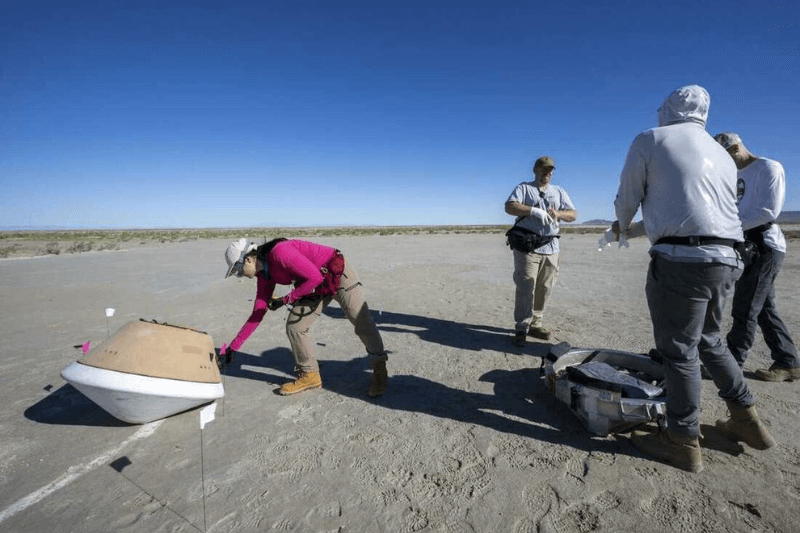
Osiris-Rex: Why Are Samples Scooped Up From Asteroid Bennu So Important
Dusty samples from asteroid Bennu, which’s been predicted to hit the Earth in the next 300 years, landed in the West Desert of Utah at 8:52 local time on Sunday.
The car-tyre-sized container came screaming into the atmosphere at more than 12 km/s. A heatshield and parachutes slowed its descent and dropped it gently on to the desert land.
Estimates Put Asteroid Bennu Samples At Some 250g!
NASA wants to learn more about the asteroid, with the samples likely to provide insights into the formation of the Solar System 4.6 billion years ago and possibly even how life got started.
The fresh samples had been scooped up from the surface of asteroid Bennu, named after an ancient Egyptian mythological bird, in 2020 by the Osiris-Rex spacecraft.
Pre-landing estimates put the precious cargo at some 250 grams. That might not sound like very much but for the types of tests NASA teams want to do, it is more than ample.
“We know how to slice and dice a 10 micron-sized particle into a dozen slices and to then map grain by grain at nano scales,” said Eileen Stansbery at NASA’s Johnson Space Centre in Texas.
Keep Reading
Shielding The Precious Cargo From Contamination
If the sample contains carbon compounds that may have been involved in the creation of life then mixing the material with present-day Earth chemistry has to be avoided.
Cleanliness was the watchword. The best way to protect the sample is to bring it from the field into the clean lab as quick as possible and get it under a pure nitrogen gas purge.
This was achieved in just four hours after touchdown. The lab team disassembled the capsule, removing its heatshield and back cover but leaving the sample secure inside an inner canister.
Locking Away 75% Of Sample For Future Generations
The American space agency is planning a press conference on October 11. Small specimens are to be distributed to associated research teams across the globe.
NASA’s director of planetary science, Lori Glaze, said: “One of the most important parts … is we take 75% of that sample and we are going to lock it away for future generations,” BBC reported.




